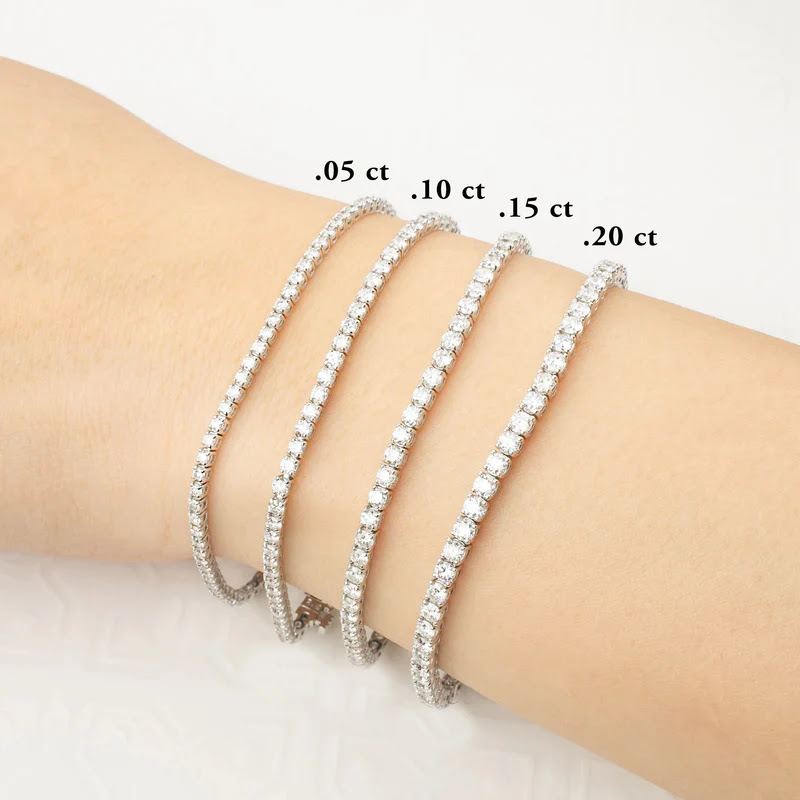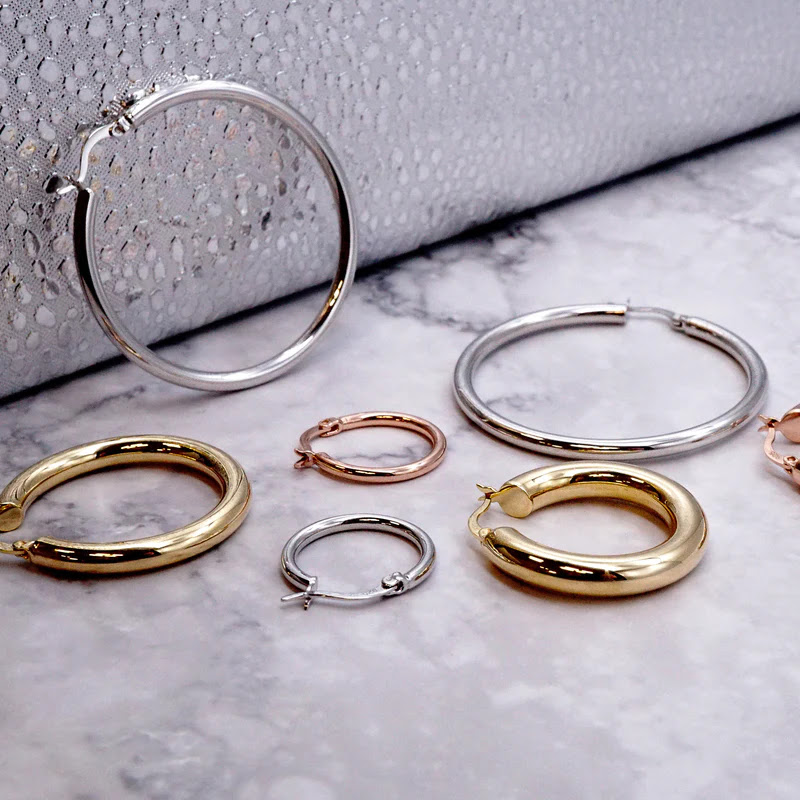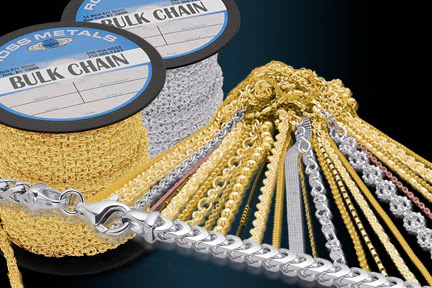

In today's competitive retail landscape, the incorporation of unique jewelry pieces from a reputable wholesale jeweler can greatly enhance your store's inventory.
Not only do these distinctive items attract discerning customers, but they also foster deeper emotional connections that can lead to increased loyalty and satisfaction.
As you consider the potential benefits of such a transformation, it is essential to understand how to effectively select and integrate these unique offerings into your existing product lineup. The next steps in this process could redefine your retail experience and set you apart in the market.
Unique jewelry offers a distinct advantage for both wearers and retailers, as it serves as a powerful expression of individuality and personal style. For consumers, unique pieces allow them to stand out, showcasing their personality and taste in a way that mass-produced items cannot achieve.
This sense of exclusivity fosters emotional connections to the jewelry, enhancing customer satisfaction and loyalty. For retailers, offering unique jewelry can differentiate their brand in a competitive market, attracting discerning customers seeking one-of-a-kind items.
Additionally, unique pieces often command higher price points, increasing profit margins. By curating a distinctive inventory, retailers can create a memorable shopping experience, encouraging repeat business and referrals. Ultimately, unique jewelry enhances the overall value proposition for both consumers and retailers alike.
When searching for the right wholesale jeweler, it is essential to sift through potential partners carefully to guarantee that they align with your business needs and values. Begin by evaluating their reputation within the industry; seek reviews and testimonials from other retailers.
Evaluate their product range-verify they offer unique designs that can complement your store's aesthetic and attract your target customers. Additionally, consider their pricing structure and minimum order quantities to make sure they fit within your budget.
Communication is key; a responsive and knowledgeable wholesaler can provide valuable insights and trends. Finally, request samples to review craftsmanship and quality firsthand, confirming that their pieces meet your standards before making a commitment.

The selection of jewelry pieces available from a wholesale jeweler can greatly enhance a retailer's offerings, making it essential to understand the various types of unique designs on the market. Unique jewelry can include artisan-crafted pieces, which often feature intricate details and one-of-a-kind elements, appealing to customers seeking exclusivity.
Additionally, you may find statement jewelry that showcases bold designs, using unconventional materials or vibrant colors to attract attention. Vintage-inspired collections often encapsulate nostalgia, while contemporary pieces may emphasize minimalism or geometric shapes.
Moreover, customizable jewelry allows customers to personalize their purchases, enhancing emotional connections. By incorporating a diverse range of unique jewelry types, retailers can cater to varied tastes and preferences, ultimately driving sales and customer satisfaction.
A well-executed jewelry display can markedly elevate a retail environment, attracting customers and enhancing the overall shopping experience. To effectively integrate jewelry into your store, consider strategically placing pieces near high-traffic areas, such as entrances or checkout counters, to capture attention.
Use complementary displays that align with your store's theme and product offerings, ensuring jewelry enhances rather than distracts from your main merchandise. Incorporate proper lighting to highlight the intricacies of each piece, creating an inviting ambiance.
Additionally, training staff to provide knowledgeable insights about the jewelry can enrich customer engagement. Finally, consider seasonal or event-based displays that encourage customers to explore and connect with the unique pieces, ultimately driving sales and cultivating brand loyalty.

Successfully integrating jewelry into your retail space is only the beginning; effectively marketing your unique inventory is key to maximizing its potential. Begin by showcasing your pieces through enchanting displays and strategic placement to draw customer attention.
Utilize social media platforms to highlight new arrivals and unique designs, creating engaging content that resonates with your target audience. Collaborate with influencers to extend your reach and enhance brand credibility. Additionally, consider hosting exclusive events or trunk shows to create buzz around your inventory.
Email marketing campaigns can further nurture customer relationships by sharing promotions and storytelling about the craftsmanship behind your jewelry. Ultimately, a well-rounded marketing strategy will elevate your retail presence and encourage customer loyalty.
Measuring success in sales is essential for understanding the effectiveness of your inventory and marketing strategies. Key performance indicators (KPIs) such as sales volume, revenue growth, and inventory turnover provide valuable insights into how well your unique pieces are resonating with customers.
Analyzing these metrics allows retailers to identify trends, such as which items are selling quickly or which are underperforming. Additionally, tracking customer feedback and return rates can inform future inventory decisions.
Implementing a robust sales reporting system enables you to adapt your offerings based on data-driven insights, ensuring that your store remains competitive. Ultimately, a thorough evaluation of sales performance will empower you to refine your approach and enhance the overall customer experience, leading to sustained growth.

Wholesale jewelry typically includes a diverse range of items catering to various markets. Common offerings encompass rings, necklaces, bracelets, earrings, and pendants, often crafted from materials such as gold, silver, and gemstones. Additionally, wholesale suppliers may provide fashion jewelry, custom pieces, and specialized items for occasions like weddings or anniversaries. This variety enables retailers to meet consumer demands while maintaining competitive pricing and ensuring quality across their inventory.
Effective inventory management is essential for optimizing operations and enhancing profitability. Best practices include implementing a robust inventory tracking system, regularly conducting audits, and utilizing just-in-time inventory methods to reduce excess stock. Establishing clear par levels for products guarantees timely replenishment while minimizing holding costs. Additionally, leveraging data analytics can provide insights into sales trends, enabling informed purchasing decisions. Regularly training staff on inventory protocols further enhances efficiency and accuracy in managing stock levels.
Handling disputes with wholesale jewelers requires a structured approach. Begin by reviewing your contract and communication history to clarify the issue. Engage in open dialogue with the jeweler, expressing your concerns respectfully and seeking mutual understanding. If resolution is not achieved, consider mediation or arbitration to facilitate a fair outcome. Maintaining professionalism throughout the process is essential, as it preserves relationships and enhances the likelihood of a satisfactory resolution for both parties.